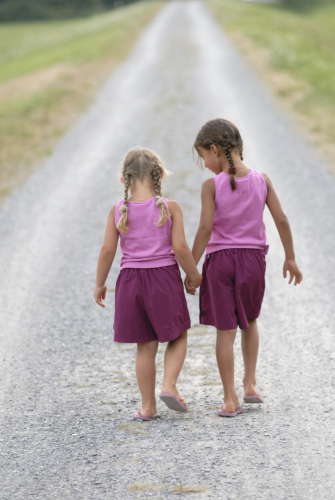Resourceful Little Treasures
Christine Miller
 In recent years there has been an upsurge of interest and concern in relation to children’s emotional and mental health. Media stories about bullying in schools, excluded children, disaffected youths creating mayhem in their communities, concerns about child pornography and the safety of the internet – all have been presented in the nation’s living rooms, and whether we judge the publicity good or bad, it is now important to recognise that the well being of our children is of widespread interest and concern.
In recent years there has been an upsurge of interest and concern in relation to children’s emotional and mental health. Media stories about bullying in schools, excluded children, disaffected youths creating mayhem in their communities, concerns about child pornography and the safety of the internet – all have been presented in the nation’s living rooms, and whether we judge the publicity good or bad, it is now important to recognise that the well being of our children is of widespread interest and concern.
Some years ago, a government report, “Promoting Children’s Mental Health within Early Years and School Settings” (DfES[i]: 2001) stated that “the mental health of children is everyone’s business”, and that adult society as a whole needed to recognise the importance of children’s mental health and emotional literacy.
- Self-esteem
- Sense of identity
- Strong family relationships
- Good communications with teachers and peer groups
The above are widely acknowledged as key elements in children who are resilient, and the risk factors for mental ill-health increase with every element missing from the list of desirable conditions.
In my role as a coach and mentor I work with a lot of young people, many of whom come along already labelled with behavioural, learning and/or emotional difficulties. That means I’m quite accustomed to witnessing sulky, aggressive and unhappy children, and it can take a fair amount of time, compassion and humour to unwind and relax and begin to make progress together.
Too Close to Home?
So when my own teenage son informed me with some passion a while ago that I “have no idea how hard it is to be a child growing up these days” it took me by surprise and prompted me to reflect carefully on my family, my work and my self.
He’s usually thought of as the wise one in his group, he appears to cope with whatever life presents to him, and he does fine at school. Yet even he is saying that coping is hard. And it’s in such moments that we can, as parents, gain great insights into just what the challenges of adolescence are these days that might make it harder than it was for us.
However, it’s tricky, because any questioning or request for explanation can lead to stonewalling silence – and so how can we mine for those precious nuggets that help us respond appropriately and with love to our little treasures and not dam up the flow before it’s even started? Because if it’s hard work being a child these days, it’s probably even harder being a parent who cares, who wants to be supportive yet finds that they are sidelined and that attempts at dialogue are blocked.
Other People’s Little Treasures
You’d think with my experience and skills with other people’s children, it would be a breeze. Aah yes. But dealing with your own kids isn’t the same as being the outside help. After all, you can’t send them home after an hour or so – they are at home. You don’t have the benefit of an outside perspective. You’re on a tightrope over what can feel like a precarious drop into dangerous waters. Well, that was what I thought until I began to reflect on the limitations I was imposing by holding those beliefs.
I wondered: if I could change my beliefs about it being hard to work with my son, could he shift his beliefs that it’s hard to be an adolescent growing up today?
And this is what happened.
Stepping Back and Stepping Out
I worked out a way of inviting my son to use a simple strategy of stepping back and stepping out.
I explained to him that I had been experiencing a paradox of finding it hard to be a parent. Feeling uncomfortable offering to help him because he’s my son, and even more uncomfortable not helping him – also because he’s my son, and especially as I have such a wide range of skills that could benefit him. So I went back in time to occasions when it would have seemed impossible and neglectful not to pass on skills and knowledge to him.
Like, what if I’d never talked to him so he could learn from me?
Or taught him to feed and dress himself?
Or helped him to read?
Or helped him to learn to ride his bike?
How weird would that have been?
And in the future, when he learns to drive … (Oh, Yes! This Year! as he gleefully reminded me) he’ll accept that know-how from his dad and me.
Crazy Imaginings
We ended up laughing at the craziest imaginary scenarios of me being reluctant to be a parent and guide to him because I knew more than he did. This opened up a really useful dialogue for us, about eking out degrees of responsibility as children approach adulthood, yet still being there. And on we went to his scenarios…
Growing Up and Expanding Your World
He stepped back and found times when it had been enormous fun to be growing up and developing, learning and exploring his expanding world, and he rediscovered a sense of joy. He noticed that there was usually someone else involved with passing on skills and knowledge, but that when he was competent he went off and did his own thing. He discovered that he had lots of resources from the past which he could bring forward into the present, and would transfer to the future.
And he recognised that accepting help and support were a way of getting stronger and growing more resourceful – real, lasting treasures to carry forward to a life where it may just be a little easier to be growing up, in that limbo where you’re neither child nor adult.
Keeping Mum
And as for me, I’ve found a more comfortable and fulfilling place in his world where we have greater understanding, and I can support him by balancing the roles of adult and parent – still keeping mum, but now able to speak up as well!!
Are there times when have you felt yourself on a tightrope in a relationship, wanting to speak up and intervene, yet knowing you need to tread with care? We’d be fascinated to find out.
[i] Department for Education & Skills (2001, June) Promoting Children’s Mental health in Early Years & School Settings








